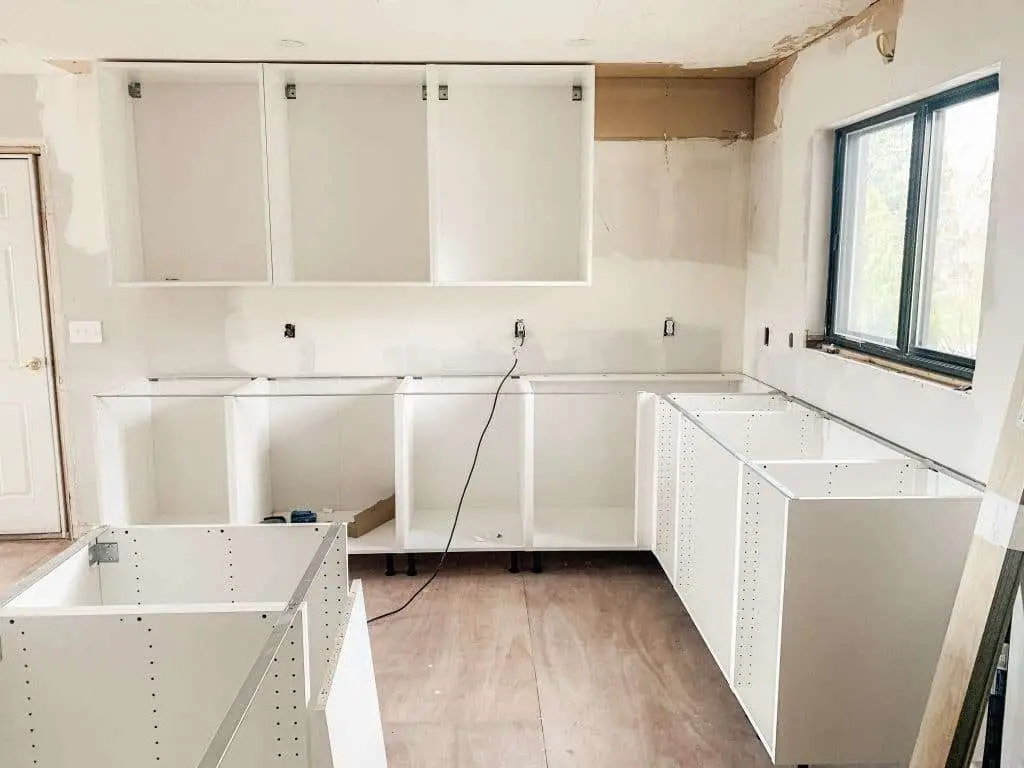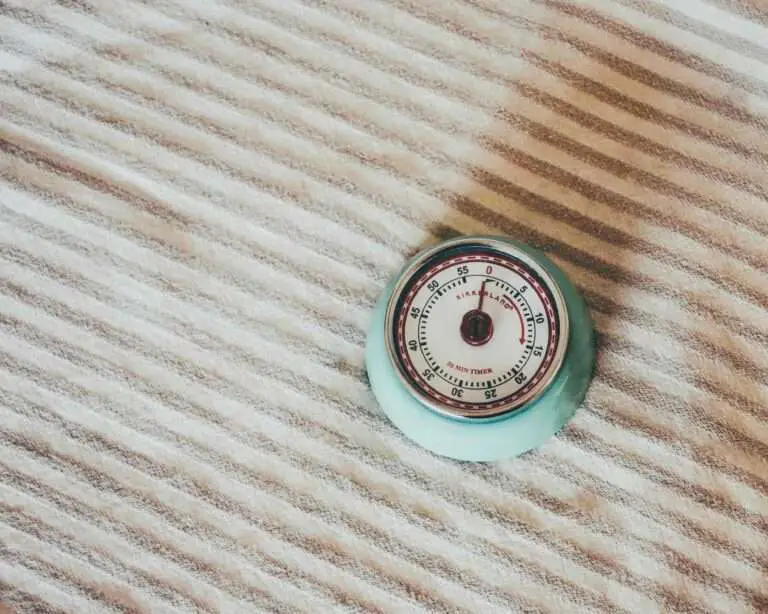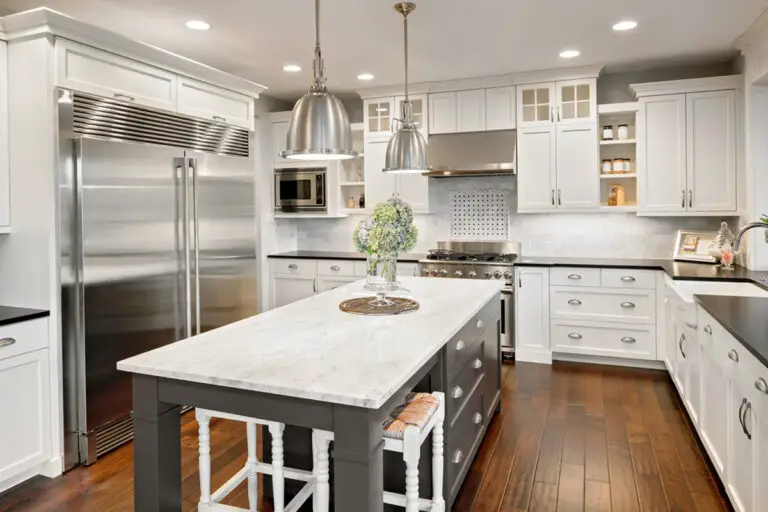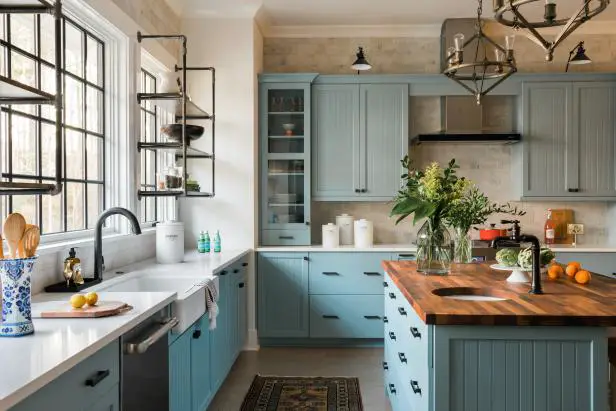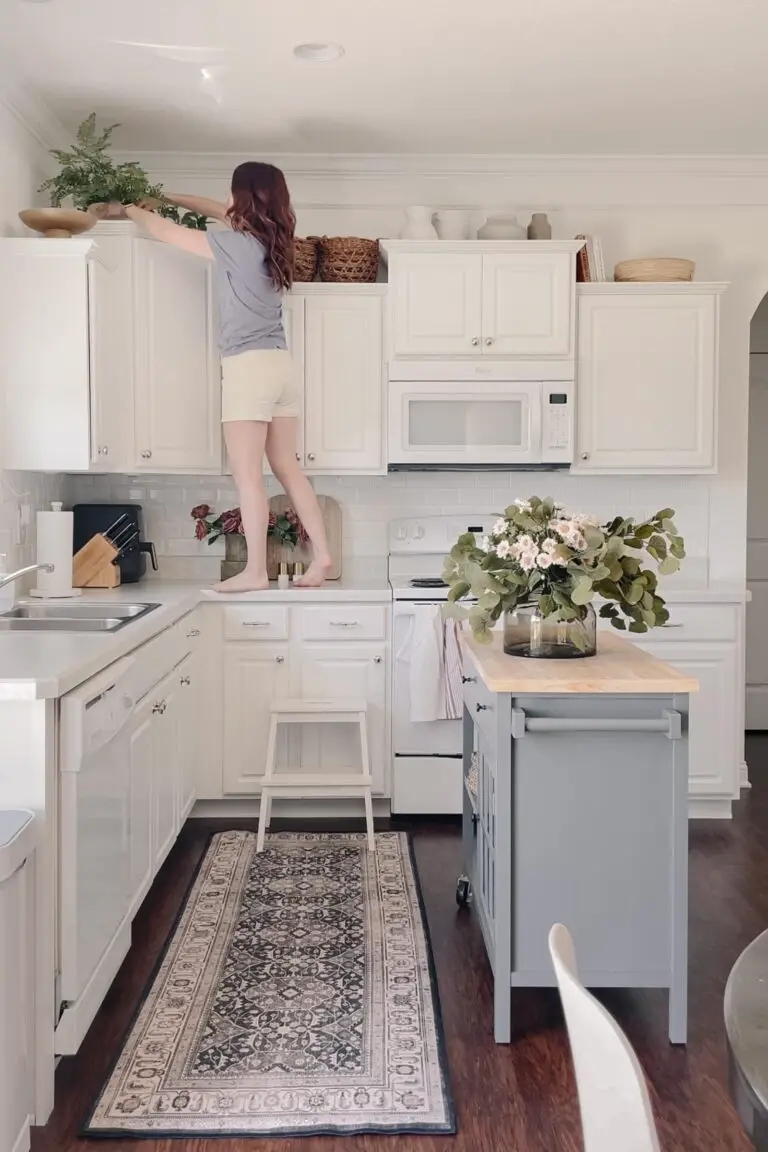What are Ikea Cabinets Made Of?
Ikea cabinets are primarily made of particleboard and fiberboard. These materials are complemented with melamine foil or wood veneer for finish and durability.
What are ikea cabinets made of? Exploring the world of kitchen renovations and home improvements leads many to Ikea, known for its cost-effective and modular solutions. Ikea’s cabinet systems, like the popular METOD and SEKTION lines, offer versatility and a modern aesthetic that fits many home decors.
The construction of these cabinets with particleboard and fiberboard allows for a lighter weight and easier assembly which is ideal for DIY enthusiasts. The use of melamine foil or wood veneer not only adds resilience but also gives the cabinets a polished look. These features, combined with Ikea’s commitment to sustainability, make Ikea cabinets a go-to choose for those looking to refresh their space without breaking the bank or compromising on style.
Ikea’s Approach To Furniture
Ikea, a name synonymous with modern and affordable furniture, offers a unique blend of design and functionality. This Swedish company has carved out a reputation for creating products that are not just stylish but also easy to assemble and kind to the environment. Knowing what Ikea cabinets are made of uncovers the heart of Ikea’s furniture-making process.
Sustainability Goals
Ikea strives to reduce its carbon footprint and make a positive impact on the planet. The company commits to using renewable and recycled materials wherever possible. Ikea believes in a sustainable lifecycle for furniture, from design to production, use, and eventually recycling.
- Focus on renewable materials like bamboo and recycled wood.
- Aim to use only recycled or FSC-certified wood by 2030.
- Implementing energy-efficient practices throughout the manufacturing process.
Design Philosophy
Ikea’s design philosophy centers on creating functional, well-designed products that are accessible to as many people as possible. The essence of Ikea’s furniture design lies in the balance between form, function, quality, and sustainability at a low price.
| Form | Function | Quality | Sustainability |
|---|---|---|---|
| Sleek, modern aesthetics | User-friendly and practical | Built to last | Eco-friendly materials |
Marrying beauty with utility, Ikea ensures every product serves a purpose and appeals to the eye. Cabinets are engineered to maximize space and offer efficient storage solutions while still maintaining Ikea’s signature minimalist look.
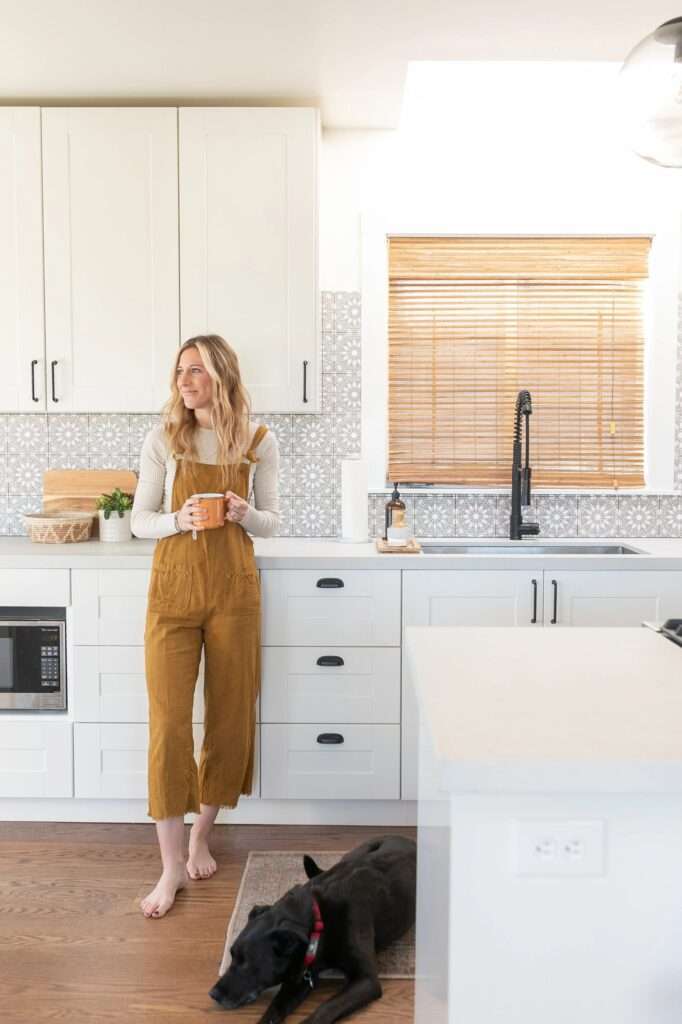
Materials Used In Ikea Cabinets
Exploring the Building Blocks of IKEA Cabinets: What goes into crafting these beloved home staples? IKEA cabinets charm with their mix of form, function, and affordability. But behind their sleek designs lies a diverse array of materials. Each component combines to provide durability, style, and sustainability.
Wood And Veneers
The warmth and natural appeal of wood are undeniable. IKEA cabinets often feature solid wood in various parts. These include frames and doors. They also use veneers. Veneers are thin wood sheets bonded to a core panel. This approach saves resources while maintaining a wood-like finish.
Particle Board And Fiberboard
Particle board and fiberboard mark the foundation of many IKEA products. These engineered wood options offer stability. They are also cost-effective. They consist of wood particles or fibers bonded with adhesive.
| Particle Board | Fiberboard |
|---|---|
| Core material for cabinets | Often used in back panels |
| Robust and heavy | Denser and smoother |
Plastics And Laminates
Plastic components and laminates add a modern touch. They contribute to the cabinets’ resilience and appearance. Laminates create a protective layer. This makes the surface scratch-resistant. Easy maintenance is a key benefit.
- Plastic handles for a comfortable grip
- Laminates for a durable surface
Metal Components
Quality metal parts ensure longevity and strength. Hinges, brackets, and screws used in IKEA cabinets are primarily metal. They provide structural support. They also offer smooth functionality.
- Stainless steel for rust prevention
- Aluminum for lightness and strength
- Nickel-plated hinges for smooth motion
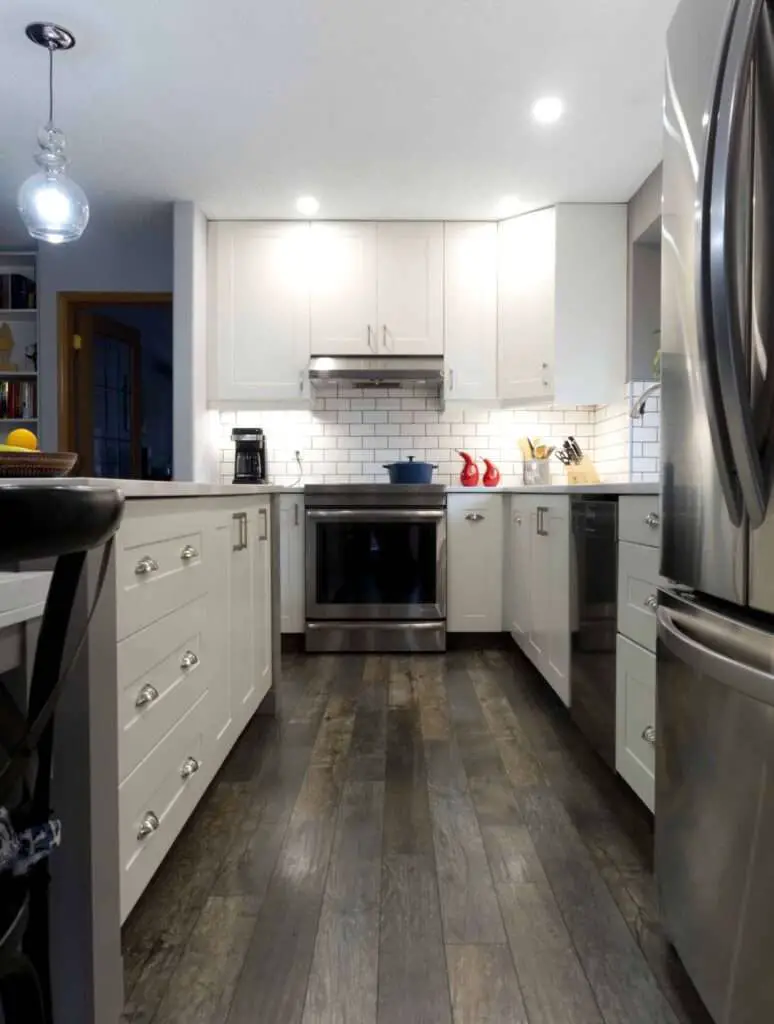
Construction Of Ikea Cabinets
Understanding the construction of Ikea cabinets reveals their appeal. As a global giant in home furnishing, Ikea delivers sleek designs that blend with any home’s aesthetic. But what exactly goes into an Ikea cabinet?
The Modular System
Ikea cabinets boast a modular design. This means they consist of pre-made units or “modules” that can be combined in various ways for a custom layout. The components typically include:
- Cabinet boxes made of particle board or MDF (Medium-Density Fiberboard), covered with melamine foil for durability.
- Doors and drawer fronts offered in a variety of materials such as wood veneer, solid wood, or laminated MDF.
- Shelving units, often adjustable, providing flexible storage solutions.
Assembly And Hardware
The cabinets come in flat packs with all the necessary hardware for assembly. Each set includes:
| Component | Description |
|---|---|
| Screws and Dowels | For joining panels and fixing hardware. |
| Mounting Brackets | To attach cabinets to wall studs. |
| Drawer Slides and Hinges | Precision-engineered for smooth operation. |
| Door and Drawer Dampers | For a soft-closing function, prevent slamming. |
Each cabinet is designed for easy assembly. Detailed instructions ensure a straightforward process. The simplicity of design allows for both a time-effective and a user-friendly assembly experience. It’s this smart design that makes Ikea cabinets a preferred choice for many homeowners.
Durability And Lifespan
Bringing an IKEA cabinet into your home means inviting both style and functionality into your living space. The true value of these cabinets lies not just in their aesthetics but their durability and lifespan. Understanding what IKEA cabinets are made of helps to appreciate their resilience and enduring nature. As investments in your home, their longevity is a testament to IKEA’s commitment to quality.
Quality Assessment
IKEA cabinets are designed to withstand wear and tear. But what ensures their longevity? Many are crafted from particle board or MDF (Medium-Density Fiberboard), covered with melamine, a type of laminate that resists moisture and scratches. The frames often include solid wood, ensuring a sturdy structure.
| Material | Properties | Contribution to Durability |
|---|---|---|
| Particle Board | Engineered wood product | Core strength, affordable |
| MDF | High-density, consistency | Smooth finish, durability |
| Solid Wood | Natural grain, robust | Structural support |
| Melamine | Heat-resistant, easy to clean | Protection against moisture and wear |
The cabinet hardware, including hinges and drawer slides, often features metal construction for added longevity. This combination of materials ensures a good balance between cost-efficiency and durability.
Maintenance Tips
Maintaining your IKEA cabinets is key to extending their lifespan. Here are some simple but crucial tips:
- Clean regularly with a soft, damp cloth and mild soap.
- Avoid harsh chemicals that can damage the finish.
- Tighten hardware periodically as loose screws can affect the structure.
- Use organizers and shelf liners to minimize scratches and damage inside.
- Address spills and moisture immediately to prevent warping or mold.
With these simple care practices, your IKEA cabinets can serve you well for years. Regular maintenance and the use of gentle cleaning techniques will keep them looking like new.
Environmental Impact
When exploring what IKEA cabinets are made of, it’s vital to consider their environmental impact. IKEA aims to balance affordability with sustainability. This approach underscores the company’s commitment to the planet. Let’s delve into how IKEA’s practices help to shield our environment.
Recycling And Waste Reduction
IKEA cabinets contribute to sustainability through waste reduction. The materials used are often designed for easy recycling. This recyclability reduces landfill waste substantially. IKEA employs materials like:
- Recycled wood fibers
- Recycled plastics
- Renewable sources such as bamboo
Through these materials, IKEA ensures that the lifespan of each product is maximized while minimizing environmental strain. Their cabinetry solutions come with recycling instructions, guiding users on how to dispose of products responsibly.
Eco-friendly Initiatives
IKEA’s devotion to the Earth goes beyond recycling. The company has implemented several eco-friendly initiatives aimed at reducing its carbon footprint. For instance, IKEA has:
- Reduced emissions in production processes
- Adopted renewable energy sources within their facilities
- Engaged in reforestation projects globally
Additionally, IKEA’s “IWAY” standard ensures suppliers adhere to strict environmental policies. This guarantees that the materials for IKEA cabinets are sourced without causing harm to ecosystems. With IKEA, customers can feel confident they’re investing in products that are kind to our planet.
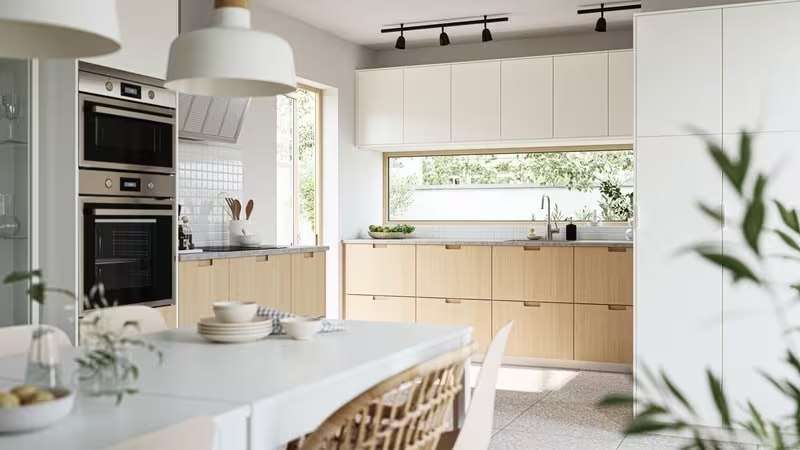
Customizing Ikea Cabinets
Ikea cabinets offer a sturdy and cost-effective foundation for any kitchen. Yet, they are just the beginning! With a little creativity, you can transform standard Ikea cabinets into custom pieces that reflect your personal style. Whether you prefer a modern, sophisticated look or a cozy, rustic charm, options abound to make your cabinets uniquely yours.
Personalizing Your Space
Your kitchen speaks volumes about your taste — and Ikea cabinets are like blank canvases waiting for a touch of creativity. Choose colors that match your home’s vibe, or add striking contrasts for a bold statement. Experiment with different materials for countertops like quartz, granite, or laminate. The combinations are endless to make your space stand out.
Consider the following to personalize your space:
- Different paint finishes: Matte, gloss, or satin
- Unique handles and knobs: Metal, leather, or wood
- Decorative panels: To add texture and depth
- Lighting: Under-cabinet LEDs or statement fixtures
Aftermarket Accessories And Hardware
Add functionality and flair with aftermarket upgrades. Third-party sellers offer a wide array of accessories tailored to fit Ikea cabinets. Think of soft-closing hinges, drawer dividers, or pull-out organizers.
| Accessory | Function |
|---|---|
| Hinges and Dampers | For a soft, silent close |
| Pull-Out Organizers | Easy access and storage |
| Drawer Dividers | Organize items neatly |
| Custom Knobs and Pulls | Upgrade the look and feel |
The right hardware can transform your space from basic to chic and functional without breaking the bank.
Consider these hardware additions:
- New knobs and handles: A quick update for a fresh look.
- Statement legs or bases: Add character and elevate your cabinets.
- Interior fittings: Tailor storage to your needs.
Frequently Asked Questions On What Are Ikea Cabinets Made Of?
What Materials Are Used In Ikea Cabinets?
IKEA cabinets primarily use particleboard and MDF, with melamine foil or wood veneer finishes. These provide durability while keeping costs down.
Are Ikea Cabinets Eco-friendly?
IKEA is committed to sustainability; their cabinets often include recycled materials and sustainably sourced wood. IKEA cabinets also meet strict environmental standards.
How Long Do Ikea Cabinets Last?
With proper care, IKEA cabinets can last 10 to 20 years. The longevity largely depends on usage, maintenance, and the environmental conditions of the kitchen.
Can Ikea Cabinets Be Customized?
Yes, IKEA cabinets offer a range of customization options. Customers can choose from various sizes, colors, and styles to personalize their kitchen layout.
Conclusion
Understanding the materials behind Ikea cabinets helps inform your choices for a stylish, functional kitchen. Engineered wood forms their sturdy foundation, often paired with melamine or acrylic for a polished look. Choose these affordable, reliable options for a kitchen that blends form with function.
Maintain this blend to ensure your culinary space remains both welcoming and enduring.


